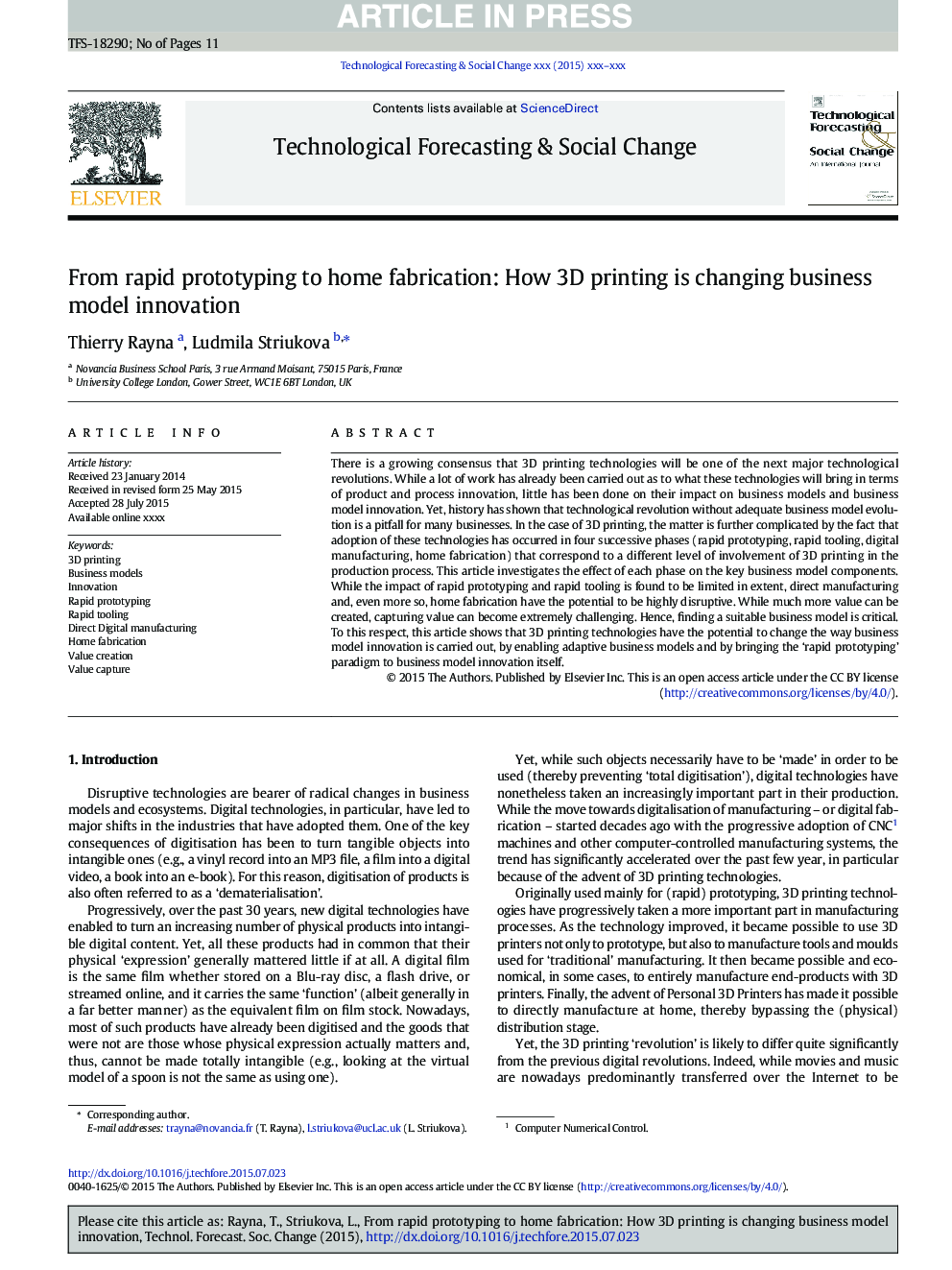| Article ID | Journal | Published Year | Pages | File Type |
|---|---|---|---|---|
| 7256284 | Technological Forecasting and Social Change | 2016 | 11 Pages |
Abstract
There is a growing consensus that 3D printing technologies will be one of the next major technological revolutions. While a lot of work has already been carried out as to what these technologies will bring in terms of product and process innovation, little has been done on their impact on business models and business model innovation. Yet, history has shown that technological revolution without adequate business model evolution is a pitfall for many businesses. In the case of 3D printing, the matter is further complicated by the fact that adoption of these technologies has occurred in four successive phases (rapid prototyping, rapid tooling, digital manufacturing, home fabrication) that correspond to a different level of involvement of 3D printing in the production process. This article investigates the effect of each phase on the key business model components. While the impact of rapid prototyping and rapid tooling is found to be limited in extent, direct manufacturing and, even more so, home fabrication have the potential to be highly disruptive. While much more value can be created, capturing value can become extremely challenging. Hence, finding a suitable business model is critical. To this respect, this article shows that 3D printing technologies have the potential to change the way business model innovation is carried out, by enabling adaptive business models and by bringing the 'rapid prototyping' paradigm to business model innovation itself.
Keywords
Related Topics
Social Sciences and Humanities
Business, Management and Accounting
Business and International Management
Authors
Thierry Rayna, Ludmila Striukova,
